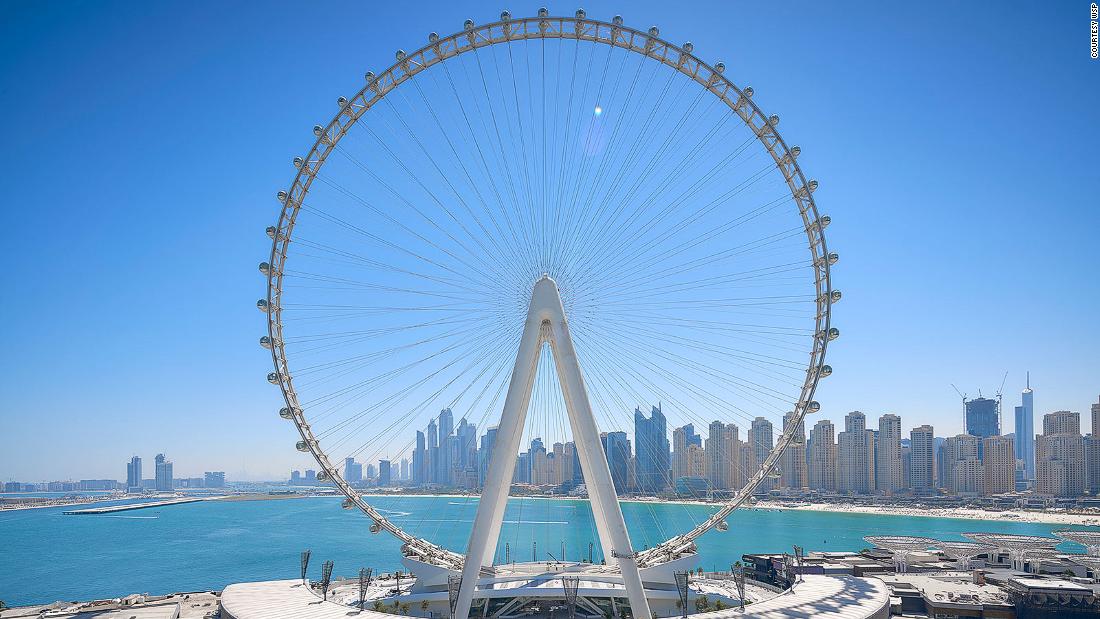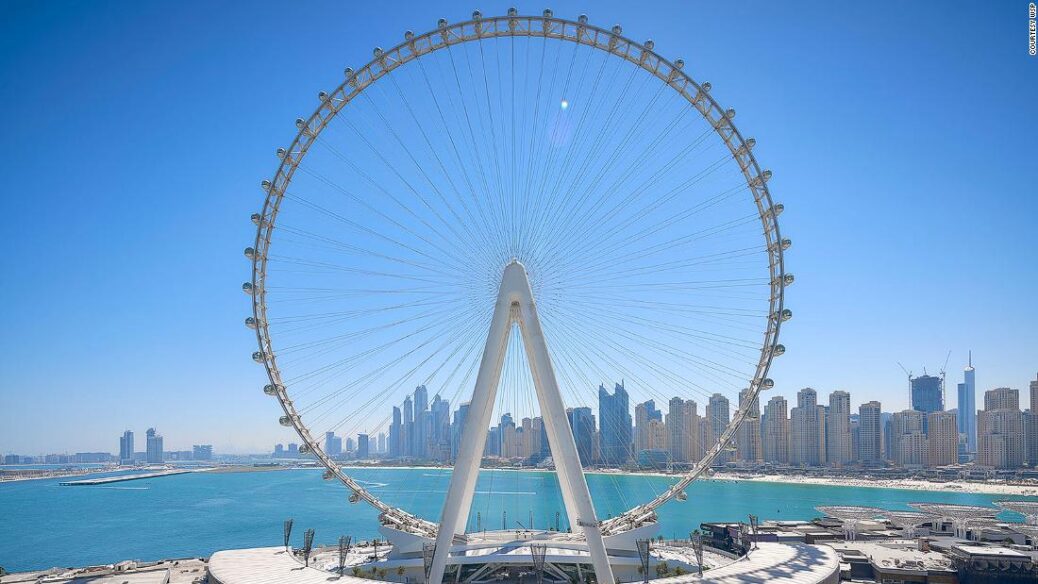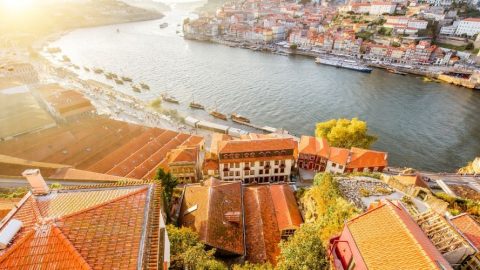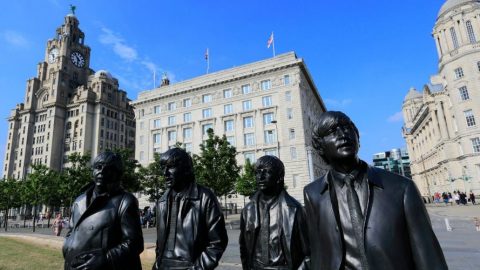
Ain Dubai, the giant observation wheel that has been taking shape on the city’s Bluewaters Island development for more than six years, will open on October 21, 2021, thus becoming the world’s largest observation wheel. But it hasn’t simply beaten the competition; it’s obliterated it.
First announced in February 2013, Ain Dubai has taken more than eight years to complete. Construction began in May 2015, with an anticipated completion date of early to mid-2019. That date was later pushed to October 20, 2020, which was then pushed back another year when Expo 2020 was delayed by a year due to the pandemic.
While rumors circulated over the reasons for the delays, the team behind Ain Dubai say that with any building project on this scale, there are bound to be hold-ups.
Capacity for 1,750 riders
Darren Brooke, senior technical director at WSP (Ain Dubai’s lead consultant and architect of record, which essentially designed the wheel), told CNN that his team “were pushing standards constantly.”
“[This has] the area of four times a standard wheel, [so] we’ve had to put a lot more emphasis in the design, making sure that the design approach is refined as much as we possibly can, while still staying within the design standards. But very much refining that to actually get to an efficient, cost-effective design.”
And the numbers associated with that design are impressive.
The structure used 11,200 tonnes of steel to build, about 33% more than the amount used to construct the Eiffel Tower. The maximum jacking force required to erect the wheel was 2,500 tonnes. The structure’s hub and spindle weighs 1,805 tonnes — equivalent to four A380 airplanes — while the combined weight of the rim and the 48 passenger cabins is 7,500 tonnes. If the 192 spokes that hold the wheel in place, which are each made of 107 separate 9mm-thick wires, were placed together end-on-end, they would stretch from Dubai to Cairo. Each of the 48 cabins are designed to fit 40 people, meaning up to 1,750 people can ride Ain Dubai at any given time.
And, given that Bluewaters is an island made from reclaimed land, the piles needed to be drilled down to the bedrock to take the weight of the structure.
Global expertise
In terms of passenger experience, given this is Dubai, it’s naturally a step above your standard ferris wheel ride.
There are three different types of cabin to take in the 38-minute rotation: observation cabins (the standard option), social cabins (these are the “VIP” option and have a bar in the center of the pod) and private cabins, which can be booked out for special occasions and include the option of a private three-course dinner over two rotations of the wheel.
Bringing all of this to fruition has meant pulling in expertise from all corners of the globe — consultants from the UAE, South Korea, Germany, the UK, the Netherlands, France and Italy all contributed to key aspects of the design.
But perhaps their biggest coup was roping in Kevin Dyer to take up the role of Ain Dubai’s operation director. Dyer is the former technical director for the London Eye.
While Ain Dubai has been designed to last for 300,000 cycles, or 60 years, to adhere to strict design and safety codes, there are measures that have been put in place to try to prolong that life span.
Experts from Politecnico di Milano, who also worked on the London Eye, worked on the analysis of the cables and the stress cycles of the structure, Brooke said, to try to make them last as long as possible.
In doing so, they had been able to “double the life of the cables” by looking at the stress cycles and the real loads on each of the cables of the London Eye, rather than the predicted loads, Brooke said.
“The forces each of those cables has got is 300 tonnes of load at their peak. Each of those 192 cables come in to those spindles, or into that hub. So you’ve got huge concentration of force.”
Several cables were also fitted with accelerators, to provide real-time data about each of the stress cycles, which will be analyzed and is aimed to extend the life of the cables, and thus the overall structure as well.
Earthquakes and storms
But the temporary works to help construct the wheel have been just as ambitious as the wheel itself.
A 135-meter-high framing structure, constructed from crane mast sections, was used to drop the wheel’s legs into place. A 300-tonne truss was constructed to secure the eight sections of the rim. A bespoke jacking system then pushed each rim segment 100 meters into the air, where they were attached to the spindle, rotated, and another segment was attached.
During this construction process, the structure was dogged with rumors of design flaws that contributed to the delayed opening date — from seized bearings that needed to be replaced to sound issues with the cabins meaning they had to be redesigned.
However, Brooke strongly refutes those claims.
“I’ve not heard one rumor that is actually based on any fact. I’ve heard rumors that the foundations were sinking, for example,” he says.
“The Ain Dubai is the safest place to be in Dubai. And I mean that for two fundamental reasons. One, it’s designed for a one-in-2,475-year-earthquake. The only other place that gets designed like that is a hospital. It’s also designed for 100-mile-per-hour storms, that’s Hurricane Scale 12 on the Beaufort scale.”
A similar sentiment was shared by a spokesperson for Ain Dubai: “What we’ve designed and developed here is hugely complex — it has never been done before, to this scale, so a lot of what we did was breaking new ground.
“This of course means that along the way, things don’t always go to plan. We hit challenges but as is the Dubai spirit, we adapted, we found solutions and we are confident that what we are delivering with Ain Dubai eclipses anything that has come before it.”





Recent Comments